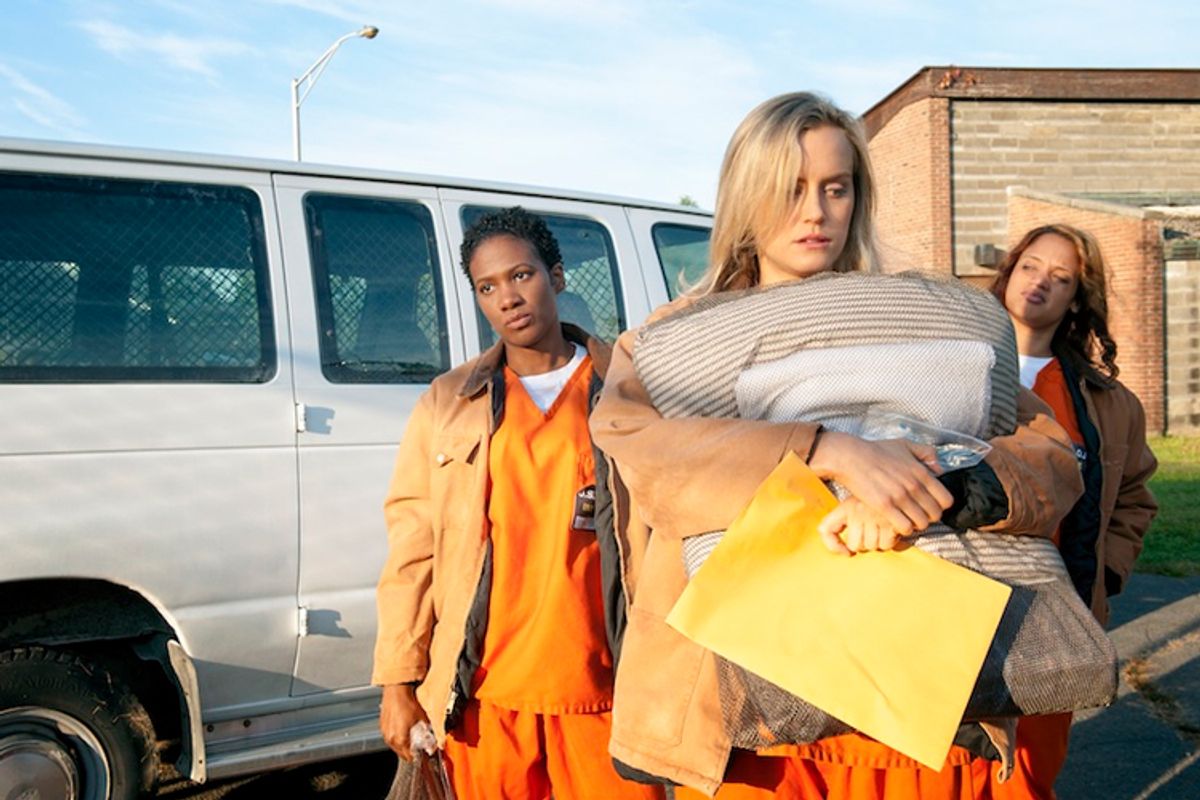“Orange Is the New Black” does a remarkable job bringing to life the human struggles real people experience behind bars. But some things are too nasty and inhumane for television.
Some scenes in "OITNB" are filmed at Riverhead Jail on Long Island, not far from the Hamptons, summer playground of the glitterati. The jail’s newfound cachet as a TV set stands in stark contrast to the horrific conditions for the people imprisoned there, all of whom are either awaiting trial – people our justice system says should be presumed innocent until it is proven that they’re guilty – or serving sentences of less than a year. People are forced to live, sleep and eat amid toilets flooding over with other people’s feces. Conditions are so filthy that people’s skin changes color, flakes and bleeds.
This will never make it onto Netflix, but here’s what former prisoner Jason Porter went through: “One night, the toilets in just about every cell exploded. The place was flooded with raw sewage. We retreated to the table area, where we sought refuge for 30 hours … Nobody should ever be forced to live in a place like Riverhead.”
Conditions are so bad that two years ago, the New York Civil Liberties Union filed a lawsuit against Suffolk County to fix the inhumane and unconstitutional conditions in Suffolk County’s jails. Nurses call the toilets a “serious health hazard” and say that no one should be locked up in a cell inhaling bodily waste. Suffolk County’s own Budget Review Office has called the situation at Riverhead “desperate.” But even basic fixes have yet to be made.
How could conditions get so bad?
Overcrowding, for one. Riverhead was built to hold 1,100 – but it typically houses more than 1,500 people. But this is just a symptom of the real issue: over-incarceration.
Like much of the country, Suffolk County incarcerates far too many people for much too long. And there’s simply no good reason to keep this up.
Unlike the characters on "OITNB," the prisoners left behind when the TV crews leave have never been convicted of a crime. Seventy-five percent of Suffolk County’s jail population are people charged with nonviolent, low-level offenses like traffic violations or simple drug possession, and the majority are locked up in pretrial detention simply because they are too poor to make bail.
Thanks to New York’s dysfunctional public defender system, poor people are often forced to negotiate bail without a lawyer. Unable to make cash bail, defendants are locked up for weeks and even months awaiting trial. Just like on "OITNB," the problem is the worst for people of color: A 2007 study of Suffolk County found that the percentage of black people behind bars because they were unable to make bail was greater than their representation in the jail population.
But more than that, over-incarceration leads to prison conditions so disgusting that they violate basic principles of decency. No one should have to live, eat and sleep surrounded by human waste every day.
"OITNB" shines an important spotlight on the hardships and indignities of prison life and the human struggle to eke out little victories in jail. As we share in the pain and humanity of the actors who bring these harsh realities to life, we need to end the even greater abuses that are the real story in Suffolk County’s jails and to demand an end to over-incarceration.
At a minimum, our criminal justice system should not so blatantly discriminate against the poor. It doesn’t benefit anyone to lock up people for nonviolent, low-level crimes simply because they cannot afford a lawyer or cannot afford cash bail. In fact, a recent Vera Institute study showed that when New York City dramatically reduced the use of cash bail in favor of releasing pre-trial defendants on their own recognizance, there was no significant increase in the number of people who failed to appear for their next court appearance – which is the whole point of setting bail in the first place.
American television viewers can stomach a lot. That some facts are too deplorable to put on TV sends as strong a message as any that we’ve got to fix our real-life jails.
Donna Lieberman is the executive director of the New York Civil Liberties Union.


Shares